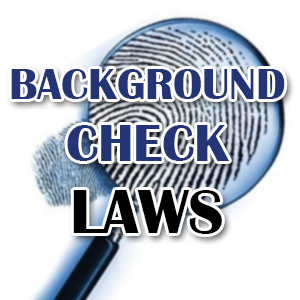
As the home health care industry continues to grow at an impressive pace, in part due to the influx of baby boomers entering retirement, there is an increasing need for regulation when it comes to hiring home health care workers. Currently there is no federal law that requires home health agencies (HHA’s) to conduct background checks, although they must comply with state laws.
However, a recent report assembled by the U.S. Department of Health and Human Services Office of Inspector General confirmed that there are 10 states which do not have any laws in place that require a background check to be performed when hiring home health aides. Two of these states are located within the New York metropolitan area: both New Jersey and Connecticut. This is a disconcerting reality that allows those convicted of serious crimes to effectively bypass a background check and work unsupervised in the homes of vulnerable people.
Among the 10 states that don’t have regulations in place that mandate background checks for home health workers, four (Connecticut, Georgia, Hawaii and West Virginia) are planning to implement such programs. In the remaining 41 states where there is some form of regulation, the law varies considerably. 26 of them allow individuals to begin working while the background check is pending, yet 6 don’t designate a time frame. Another 26 don’t require any additional background checks during employment. 35 states specify convictions that disqualify applicants, some categorize them by severity and others list particular offenses.
In 16 states, convictions can be waived. This opportunity also varies by state: only 7 of the 16 allow any conviction to be waived. Missouri’s “Good Cause Waiver,” for example, allows an opportunity for disqualified applicants to try and waive their convictions by offering an explanation, information concerning pending charges, a sponsorship letter from another employer and employment history. The waiver is then reviewed by health care professionals and considered on a case-by-case basis.
As it stands, HHA’s can choose to run background checks, but are not legally obligated. The Affordable Care Act established a Nationwide Background Check Program that awards grant funds to states that choose to perform background checks on long-term care employees. So far, the Centers for Medicare & Medicaid Services (CMS) has awarded $50 million to 24 states for this initiative.
Mandatory background checks have significant potential to prevent the abuse and neglect of susceptible individuals. A 2008 study of long-term care employees, including home health care workers, conducted across 7 states found that 3.7% of applicants for home health care jobs were disqualified because of criminal history. This indicates that up to 1 in 30 home health aides working in states without regulations requiring background checks may be unfit for the job. Background checks can be a powerful tool when it comes to making hiring decisions, and giving all states a legal obligation to conduct them could greatly reduce incidents of theft, mistreatment and fraud in the future.
Below is a chart that shows the various background check requirements that each state imposes on home health agencies.
| FBI and Statewide for All Individuals | Statewide for All Individuals | FBI and Statewide for Certain Individuals | Statewide for All and FBI for Certain Individuals | Statewide for Certain Individuals | None | |
| Alabama | X | |||||
| Alaska | X | |||||
| Arizona | X | |||||
| Arkansas | X | |||||
| California | X | |||||
| Colorado | X | |||||
| Connecticut | X | |||||
| District of Columbia | X | |||||
| Delaware | X | |||||
| Florida | X | |||||
| Georgia | X | |||||
| Hawaii | X | |||||
| Idaho | X | |||||
| Illinois | X | |||||
| Indiana | X | |||||
| Iowa | X | |||||
| Kansas | X | |||||
| Kentucky | X | |||||
| Louisiana | X | |||||
| Maine | X | |||||
| Maryland | X | |||||
| Massachusetts | X | |||||
| Michigan | X | |||||
| Minnesota | X | |||||
| FBI and Statewide for All Individuals | Statewide for All Individuals | FBI and Statewide for Certain Individuals | Statewide for All and FBI for Certain Individuals | Statewide for Certain Individuals | None | |
| Mississippi | X | |||||
| Missouri | X | |||||
| Montana | X | |||||
| Nebraska | X | |||||
| Nevada | X | |||||
| New Hampshire | X | |||||
| New Jersey | X | |||||
| New Mexico | X | |||||
| New York | X | |||||
| North Carolina | X | |||||
| North Dakota | X | |||||
| Ohio | X | |||||
| Oklahoma | X | |||||
| Oregon | X | |||||
| Pennsylvania | X | |||||
| Rhode Island | X | |||||
| South Carolina | X | |||||
| South Dakota | X | |||||
| Tennessee | Tennessee requires that HHA’s check registries of sex offenses, adult abuse, and elder abuse. | |||||
| Texas | X | |||||
| Utah | X | |||||
| Vermont | X | |||||
| Virginia | X | |||||
| Washington | X | |||||
| West Virginia | X | |||||
| Wisconsin | X | |||||
| Wyoming | X | |||||
| FBI and Statewide for All Individuals | Statewide for All Individuals | FBI and Statewide for Certain Individuals | Statewide for All and FBI for Certain Individuals | Statewide for Certain Individuals | None | |
